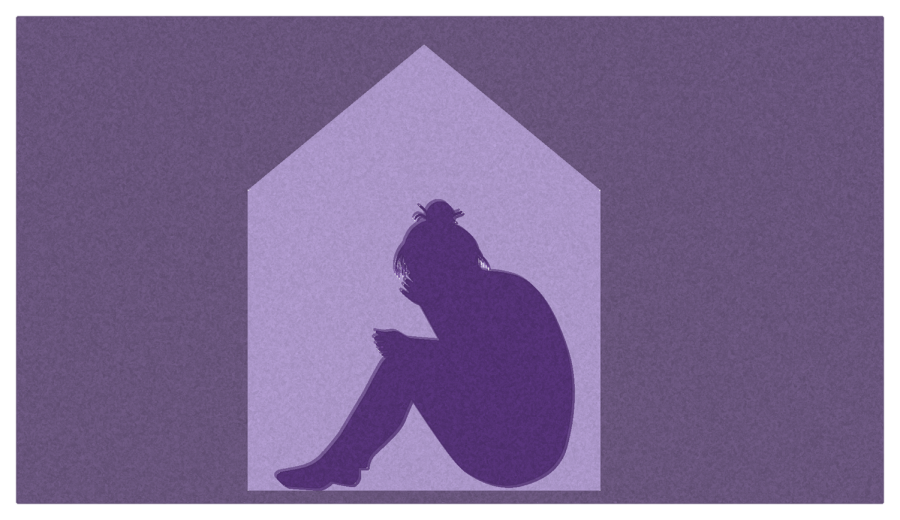Cushman: DV Survivors Deserve Access to Crime Victims’ Funds
(Design by Claire Peterson | The Daily Utah Chronicle)
June 1, 2022
The Utah Office for Victims of Crime has been providing crime victims assistance and financial compensation for decades. The Crime Victims’ Reparations Fund can help cover crime-related expenses like medical bills or therapy. During this year’s legislative session, our representatives voted to make the process of seeking that compensation easier for sexual assault survivors.
House Bill 228 modified the requirements for sexual assault victims seeking compensation, which previously forced survivors to report the crime and cooperate with police for eligibility. Now, victims of sexual violence can receive reparations regardless of cooperation with police, which is critical given the underreporting of sexual assault. This exemption for police cooperation should be further extended to cover domestic violence, which is also severely underreported.
Trauma and Police Reports
Only 310 of every 1000 sexual assaults are reported to police, compared to 627 assault and batteries and 619 robberies. Most sexual assault survivors refuse to report to police, citing fear of retaliation or lack of help as major reasons. Survivors who engage with the criminal justice system can be accused of lying and experience victim blaming, making the criminal justice journey a kind of secondary victimization. This falls in line with previous research, demonstrating that despite survivors reporting their sexual assault to the legal or medical system, a majority of them do not receive adequate help. As a result, our criminal justice system perpetuates underreporting and poor treatment of victims, showing an urgent need for change to help survivors get justice.
Inadequate support of victims underscores the importance of H.B. 228 and allowing survivors to opt out of participating in the legal system. Under the old requirements for Crime Victims’ Reparations, as many as two-thirds of sexual assault survivors would have been ineligible for compensation. Now, survivors can receive those funds regardless of their choice to involve the legal system in their healing journey. For victims who had choice taken away from them, giving them choices after their assault makes our system more compassionate.
H.B. 228 also minimizes the possibility of abuse towards the reparation fund. In lieu of police cooperation, victims can work with victim advocates both in the criminal justice system and from nonprofits to receive funds. Like the purpose of police reports, working with victim advocates ensures a level of authenticity to make sure funds reach real survivors. Importantly, H.B. 228 also expands the role of victim advocates, people trained to work with survivors in a trauma-informed way.
H.B. 228 helped us create more trauma-informed requirements for Crime Victims’ Reparations eligibility, while also minimizing the possibility of fund abuse. Despite the huge victory, the bill only extends to survivors of sexual assault.
Extend the Same Understanding to DV Survivors
When it comes to underreporting and fear, DV is shockingly similar to sexual assault. Most domestic violence survivors never report their cases to police. Reasons can range from financial control from their abuser to trying to keep their family together. Similarly to sexual assault survivors, common reasons for not reporting include fear of disbelief, retaliation or negative consequences for their family. It often takes a DV survivor seven attempts to leave their abuser for good. Not only is DV severely underreported, but when it is, survivors do not always cooperate with law enforcement or prosecution.
This leaves DV survivors ineligible for victims’ compensation, despite the Utah Office for Victims of Crime covering DV. In our state, 33.6% of women and 21.4% of men will experience stalking, physical or sexual violence. Utah has a number of programs to support those survivors, but lack of resources means they cannot always meet the needs of survivors. And with DV rates up 25-50% here in Utah, now is the time to offer survivors the same access to crime victims’ funds regardless of police cooperation.
H.B. 228 improved our crime victims’ reparation system by acknowledging the reality of sexual assault underreporting and making reparation funds more accessible. Being trauma-informed means understanding the impact of violence on victims and working to improve our response based on that information. Until we also acknowledge how DV trauma manifests, the requirements for Crime Victims’ Reparations will continue to fail survivors of trauma.









